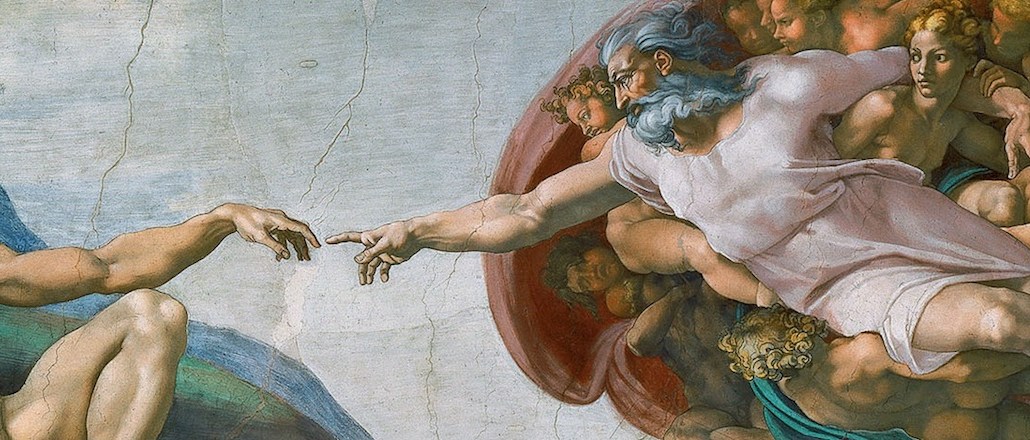Last chance to save on Digiday Publishing Summit passes is February 9

Mark Duffy has written the Copyranter blog for 11 years and is a freelancing copywriter with 25-plus years of experience. His hockey wrist shot is better than yours.
Mark my words, 2017 will be the year of the creative.
It won’t be the year of creative “work,” mind you. The creative product is going to suck like it has never sucked. It is going to suck even worse than it sucked last year, and last year it sucked a golf ball through a garden hose. It sucked the chrome off a trailer hitch. It sucked like an Electrolux (not a branded “content” sentence).
No, this year will finally be the year when you and me and everybody we know will have “creative” in their title. And my proprietary handheld projection device indicates that by the end of 2017, 98-99 percent of industry people with “creative” in their title will have never created a creative ad, of any kind, ever, in their life, and never will.
PR mega-firm Burson-Marsteller just hired its first global chief creative officer. And if you look at the AdAge URL, it reads “Burson puts creativity forefront.” That’s a good one. I get a lot of emails from PR firms big and small. They all share one characteristic: They’re not in any way interesting. They read like they were written by a fake-cheerful $2.99 bot who’s taken a few ESL classes. PR firms are not creative places, no matter how creative their shirts or glasses are. For them, “creativity” = coordinating a shorts day.
It wasn’t that long ago that even ad agencies didn’t have “chief creative officers.” You got to “VP, executive creative director,” and you either stayed at that level, became president or CEO, or started your own agency. What do CCOs do, mostly? Talk to the press and at conferences, and say words like “integrated” and “seamless” and “cross-network.” Essentially, they are useless.
The world’s largest financial consultant who put Tiger Woods in some bad “tiger” metaphor ads and followed that up with some bad actual animal metaphor ads now employs many “creative” directors, CDs who’ve never created anything from scratch.
One of the “Big 4” accounting firms now throws the “c” word around like they’re George Lois. I worked as a proofreader for a “Big 4” for two years: These are not creative places.
In-house “creative” studios — in all kinds of houses: client, marketing, media, social — are popping up like fake boners in ED ads. Many of these studios have several employees under 30 with the title “creative director,” even though what they mostly create are mind-numbing native copy ads dictated to them nearly word-for-word by the client, or native listicles, or the stupid GIFs for these native ads. These creative directors have never “directed” creative or created creative “creative” in their short careers. Mostly, they’re just order takers with computer skills.
Having a keen understanding of “platforms” and perfunctory knowledge of Photoshop does not make you “creative.”

How many “creative ambassadors” are there in the ad world now? What do they do, exactly? Negotiate the release of copywriters being forced to write native ads about the client’s one minor altruistic project? Fudge engagement numbers?
And don’t get me started on “creative technologists.” (They’re mostly developers with zero creative training.). Technology, just like platforms, ≠ creativity. And technology is never a big idea, because advertising is not a science. And it never will be.
Meanwhile, the most creative people in advertising (copywriters and art directors) don’t have “creative” in their title, and they don’t give a shit. The good ones know what they’re good at, and they just do it, day after day.
If you’re one of the many uncreative people who finagles “creative” into your title this year, at least go buy some new duds or kicks. And carry a George Lois book around with you. Hoodwinking will take you a long way.
More in Marketing

Facing ‘AI slop’ and a trust problem, AI platforms invest in Super Bowl-level brand ads
To fight distrust and ‘AI slop,’ AI platforms are investing heavily in brand advertising.

Retailers, brands face a test: Oppose ICE or stay quiet while thousands protest
Up until a few days ago, Target and other major employers in Minnesota had refrained from speaking out on ICE’s presence in the state.

Digiday staffers tackle the creator vs. influencer divide
Creator vs. influencer: Digiday staffers debate the difference, and why it matters to marketers on this episode of the Digiday Podcast.








